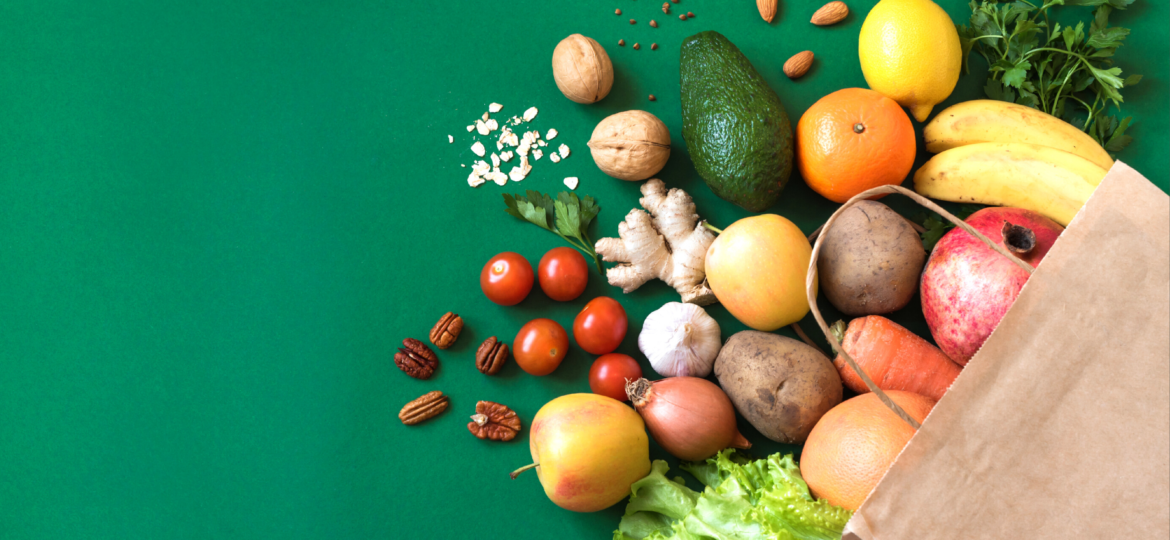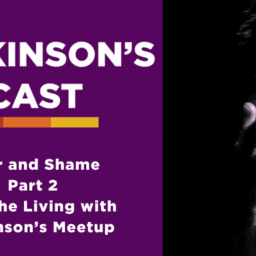One of the most common questions we’re asked is this: “What should I eat now that I’ve been diagnosed with Parkinson’s?” The answer is that there is no one answer. Just as each person with Parkinson’s experiences different symptoms, each person reacts differently to different types of diets.
In this episode
In this session, our panel members, along with a registered dietician who is living with Parkinson’s, talk about food as medicine.
To download the transcript, click here.
(Note: This isn’t a perfect transcript, but it’s close.)
Show Notes
- Eating nutritiously is an important factor in living well with Parkinson’s, but there is no one-size-fits-all Parkinson’s food plan. Explore different healthy eating plans to find what feels best for you. Panelist Kat Hill recommends keeping a food and symptom journal so you can clearly see what foods are impacting you and how
- As Parkinson’s progresses, bradykinesia and rigidity can cause problems with swallowing, which can increase your risk for aspiration (when material goes past the vocal cords, goes down toward the airway and then filters down into the lungs). Some tip from our panelists to reduce this risk include swallowing with purpose, slowing the pace of your eating, and eating mindfully (which can also enhance the flavor and texture of your food and decrease over-eating)
- Marty says that single-ingredient supplements are only necessary if you know you’re deficient in that vitamin or mineral. Be sure to talk with your physician about any supplements you’re interested in taking before you begin to take them
- There are countless diets and eating plans that are advertised regularly, including the Mediterranean diet, Whole 30, the Keto diet, paleo, and more. Explore what feels good for your body. It may be one of these plans, none of these plans, or some elements from each. You may try utilizing Kat Hill’s method for healthy eating: to buy foods with ingredients on the label that she can pronounce
- Hydration is critical for healthy living and for Parkinson’s in particular. Proper hydration minimizes constipation and helps with medication absorption, among other things
- Protein is an essential part of a healthy diet, but be mindful about when you consume it in regards to your medications since protein interferes with the uptake of carbidopa/levodopa. To help avoid this interference, try to take your medications 30 minutes before or one to two hours after eating a protein-heavy meal
- Life happens, and you may not be able to eat a perfectly balanced diet all the time. When this happens, compensate with what you can control. Kat says that when she’s camping, she tends to eat more processed foods, so to balance that, she drinks extra water and adds extra fiber into her meals
resources and topics discussed
The Science of Parkinson’s OFF
How to Take Levodopa for Parkinson’s
Plant Based Diet for Parkinson’s
17 Most Commonly Asked Questions About Parkinson’s Nutrition
x
Thanks for Listening!
To share your thoughts:
- Leave a note in the comment section below.
- Ask a question by emailing us here.
- Share this show on Facebook.
To help out the show:
- Leave an honest review on iTunes. Your ratings and reviews really help, and we read each one.
- Subscribe on iTunes.
Listen & Subscribe
Apple Podcasts | Stitcher
*The Third Season of the Parkinson’s Podcast is made possible through generous support in honor of Dr. Margaret Hilgartner.

















